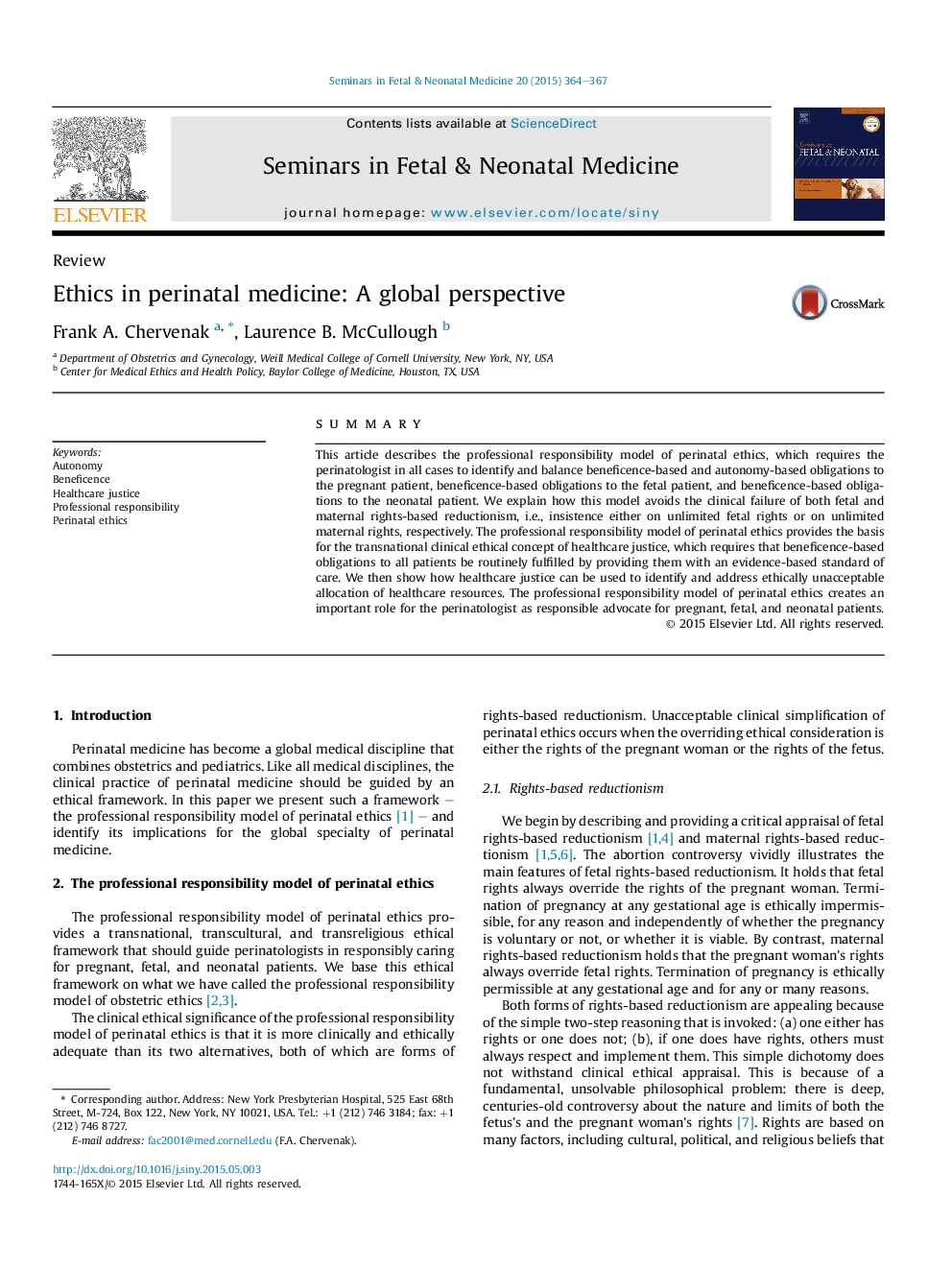| کد مقاله | کد نشریه | سال انتشار | مقاله انگلیسی | نسخه تمام متن |
|---|---|---|---|---|
| 3974009 | 1256959 | 2015 | 4 صفحه PDF | دانلود رایگان |
SummaryThis article describes the professional responsibility model of perinatal ethics, which requires the perinatologist in all cases to identify and balance beneficence-based and autonomy-based obligations to the pregnant patient, beneficence-based obligations to the fetal patient, and beneficence-based obligations to the neonatal patient. We explain how this model avoids the clinical failure of both fetal and maternal rights-based reductionism, i.e., insistence either on unlimited fetal rights or on unlimited maternal rights, respectively. The professional responsibility model of perinatal ethics provides the basis for the transnational clinical ethical concept of healthcare justice, which requires that beneficence-based obligations to all patients be routinely fulfilled by providing them with an evidence-based standard of care. We then show how healthcare justice can be used to identify and address ethically unacceptable allocation of healthcare resources. The professional responsibility model of perinatal ethics creates an important role for the perinatologist as responsible advocate for pregnant, fetal, and neonatal patients.
Journal: Seminars in Fetal and Neonatal Medicine - Volume 20, Issue 5, October 2015, Pages 364–367
